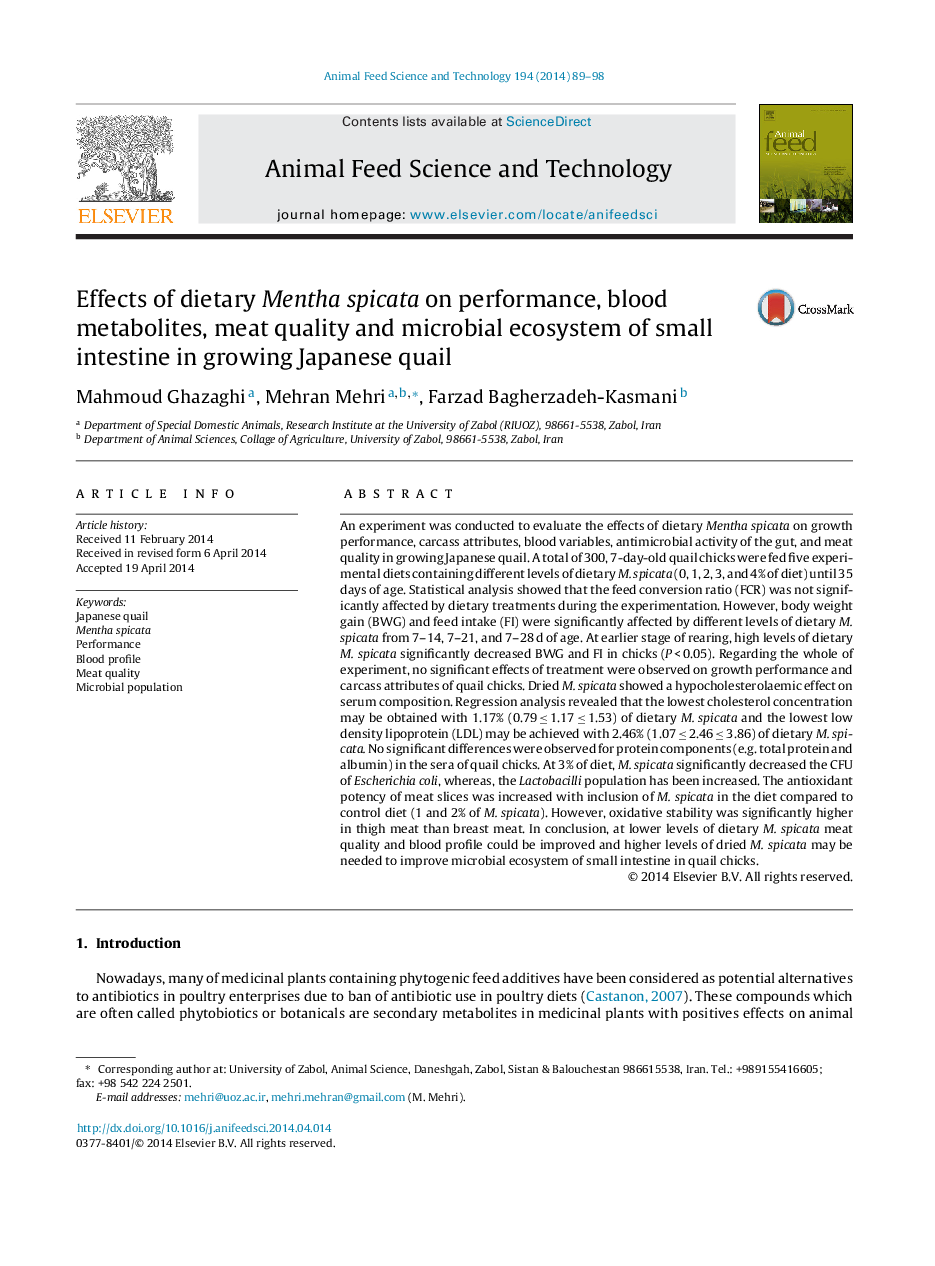| کد مقاله | کد نشریه | سال انتشار | مقاله انگلیسی | نسخه تمام متن |
|---|---|---|---|---|
| 2419569 | 1552391 | 2014 | 10 صفحه PDF | دانلود رایگان |

• Using herbal bioactives like s-carvone did not improve bird performance.
• Mentha spicata improved lipid profile of blood.
• Mentha spicata improved the meat quality.
• Mentha spicata improved microbial populations in small intestine.
An experiment was conducted to evaluate the effects of dietary Mentha spicata on growth performance, carcass attributes, blood variables, antimicrobial activity of the gut, and meat quality in growing Japanese quail. A total of 300, 7-day-old quail chicks were fed five experimental diets containing different levels of dietary M. spicata (0, 1, 2, 3, and 4% of diet) until 35 days of age. Statistical analysis showed that the feed conversion ratio (FCR) was not significantly affected by dietary treatments during the experimentation. However, body weight gain (BWG) and feed intake (FI) were significantly affected by different levels of dietary M. spicata from 7–14, 7–21, and 7–28 d of age. At earlier stage of rearing, high levels of dietary M. spicata significantly decreased BWG and FI in chicks (P < 0.05). Regarding the whole of experiment, no significant effects of treatment were observed on growth performance and carcass attributes of quail chicks. Dried M. spicata showed a hypocholesterolaemic effect on serum composition. Regression analysis revealed that the lowest cholesterol concentration may be obtained with 1.17% (0.79 ≤ 1.17 ≤ 1.53) of dietary M. spicata and the lowest low density lipoprotein (LDL) may be achieved with 2.46% (1.07 ≤ 2.46 ≤ 3.86) of dietary M. spicata. No significant differences were observed for protein components (e.g. total protein and albumin) in the sera of quail chicks. At 3% of diet, M. spicata significantly decreased the CFU of Escherichia coli, whereas, the Lactobacilli population has been increased. The antioxidant potency of meat slices was increased with inclusion of M. spicata in the diet compared to control diet (1 and 2% of M. spicata). However, oxidative stability was significantly higher in thigh meat than breast meat. In conclusion, at lower levels of dietary M. spicata meat quality and blood profile could be improved and higher levels of dried M. spicata may be needed to improve microbial ecosystem of small intestine in quail chicks.
Journal: Animal Feed Science and Technology - Volume 194, August 2014, Pages 89–98